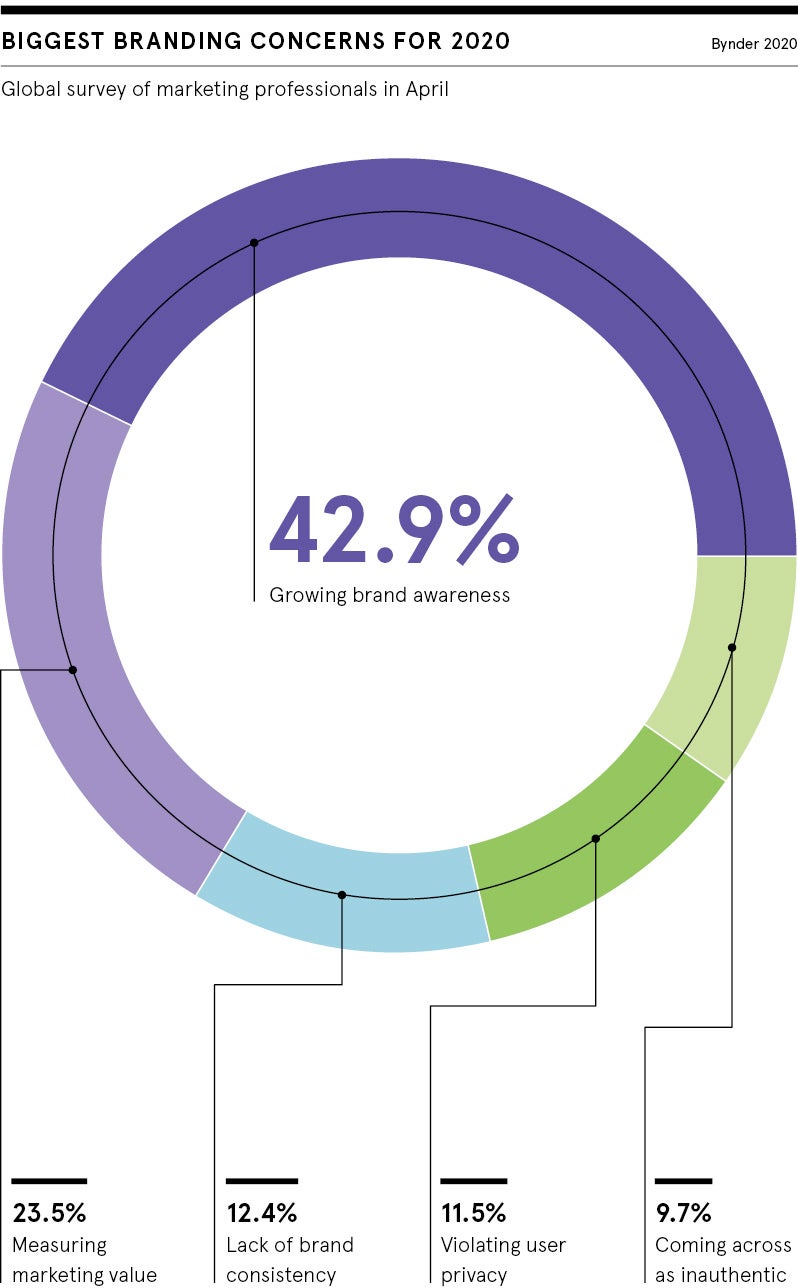Demanding, discerning and considered. Three words that sum up the consumer of today and tomorrow.
That is the view of Craig Inglis, chair of the Marketing Society and former customer director for John Lewis & Partners, who believes the emerging consumer psyche is an opportunity for creativity to shine.
After months of lockdown, changes to work patterns and social behaviour, the crisis of the coronavirus pandemic has morphed into the new normal.
“This pandemic has been a massive jolt to us all and made us think very carefully about what really matters,” says Inglis, who overhauled John Lewis’s customer strategy as well as leading its now-legendary Christmas campaigns during his 12-year tenure at the retailer, which ended in March.
“People still want to buy and engage with brands, but in a different way. Technology has led consumers to become more informed, which means they are more demanding, discerning and considered about what they buy, and who they buy it from.
“That means brilliant products and great service, but also trust and finding a connection with that sentiment of brand purpose.”
Brands must understand customer psychology
There is no doubt that 2020 will be chalked up as one of the most challenging and volatile of times, as on an individual level people faced health concerns, personal loss and financial worries, while the wider UK economy shrank more than 20 per cent in the three months to June.
Understanding customer psychology will be the linchpin for businesses to emerge successfully, points out Inglis, who is no stranger to market turmoil. Having been appointed marketing director at John Lewis in March 2008, he was immediately faced with responding to the fallout of the global financial crisis. Just six months earlier, Northern Rock had been nationalised after a bank run unprecedented since 1866, while the collapse of Lehman Brothers in the United States was around the corner.
People still want to buy and engage with brands, but in a different way
“When you look at big moments like the 2008 financial crisis, and the current pandemic, the anchor points are taken away for consumers, which can cause them to reel,” says Inglis. “Everything we thought was the norm is disrupted, which can run deep and challenge our beliefs about who and what
we trust.
“We definitely saw that in 2008. No one would have believed it was possible to see the scenes of people queuing around the block to take their life savings out of banks to hide under the mattress. This crisis is like that, but magnified many times over so, inevitably, confidence is very low.”
Talking about brand purpose is not enough
Customer trends including sustainability, searching for brands with an ethical purpose and online shopping have been “accelerated” because of the pandemic, he highlights, which provide opportunities in the short and longer term.
“Lockdown fundamentally changed our habits around travel and consumption, and retailers who can respond to that with creative and authentic propositions will be a great commercial success,” says Inglis, pointing to the latest Global Consumer Insights Survey from PwC, which found customers will become long-term advocates of brands that prioritise care, wellbeing and innovation.

“We see consumers are actively choosing brands that support the NHS, look after employees or have a purpose. That cannot just be forgotten now we are coming out of lockdown as I honestly think these actions will build long-term advocacy and loyalty, as long as they are authentic and rooted in truth about the business.”
For Inglis, it is “as much about what you do as what you say”. He explains: “It has been shocking and scary, but this pandemic has caused us all to step back and think about what really matters in life.
I think that marketers, as the leaders in brands on behalf of consumers, need to be really challenging about how those brands behave.
“Don’t talk at customers about what you think they want to hear; it is about really understanding your customers and genuinely connecting with them with honesty, humanity and warmth.”
Businesses embracing brand activism
The growing trend for businesses to engage in brand activism, driven by consumers’ desire to see brands they connect with taking a positive role in society, has to be backed up with action, he says.
For example, brands trying to engage with the recent resurgence of the Black Lives Matter movement following the death of George Floyd in America and examples of inequalities in the UK have been put under intense scrutiny when the make-up of their leadership teams do not reflect the diversity messages they have adopted.
“Brands need to have their own house in order as we are judged by our actions,” warns Inglis. “Movements like Black Lives Matter have grown out of very deep-seated issues that matter very deeply to people who have often had very significant and painful life experiences.
“Brands cannot expect to just connect with that; we must expect to be challenged. Caring about issues is not new for consumers, but what is different is their preparedness to walk away from brands they don’t believe are relevant to their lives.”
The biggest opportunities are online
As lockdown lifts and consumers emerge back into near-traditional physical shopping and socialising environments, the biggest focus is on safety, with an expectation that businesses allay those fears in practical ways. But with digital spaces feeling like a safe haven, it is inevitable the online experience has become a priority.
PwC’s study found that 45 per cent of people have increased their shopping by mobile phone, while 41 per cent are doing more shopping on their computer and 33 per cent on their tablet.
“Digital is the biggest opportunity by far,” says Inglis. “There is nothing new in that for retailers, but the pandemic has turbo-charged digital. It is no longer a question of how or when, but a case of survival.
“Digital is not to be underestimated. It is not just about creating a website, but a total re-engineering of a business.” That can mean some tough decisions and making calls that have long been put on the “too difficult pile”, he adds.
In times of crisis, innovation and creativity are not just important but essential
High street retailer Marks & Spencer is a good example, as its recent announcement of 7,000 job losses to free up cash for a digital renaissance that includes a partnership with Ocado has been tipped to be a sink-or-swim decision.
And John Lewis unveiled a new digital first strategy at the end of July, revealing its expectation of increasing to 60 per cent online, from 40 per cent pre-pandemic, while Waitrose is expected to rise to at least 20 per cent online, compared to 5 per cent before the crisis.
It’s essential to “invest in the customer proposition you need to create to remain relevant”, says Inglis, as well as capturing the commercial benefit from investing in marketing at a time when reduced ad rates provide great value.
“The world is moving fast and so are our customers’ lives,” he concludes. “In times of crisis, innovation and creativity are not just important but essential. This is the time to differentiate to remain relevant. That is really business critical.”
Brands must understand customer psychology
Talking about brand purpose is not enough






